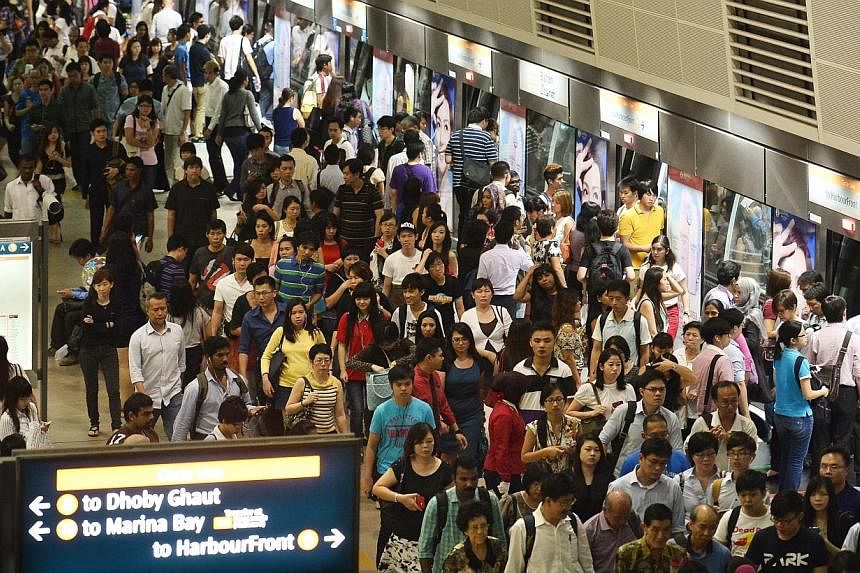SINGAPORE - Singapore has one of the most cost-efficient public transport networks in the world, according to a study released on Monday.
Conducted by London consulting firm Credo, the study sought to calculate the "economic cost" of inefficient transport to the economies of 35 cities, as well as the economic benefits of investing in transport.
It derived the cost of commuting using factors such as journey time, fares, crowding levels, and ease of using the network. The more efficient a transport network, the lower the impact on productivity.
The study found that in Singapore, the economic cost of transport to an individual commuter is 8.9 per cent of Gross Domestic Product (GDP) per capita.
Mr Chris Malloy, a partner at Credo, described the rating as the proportion of a person's time that is unproductive due to transport.
The study divides the 35 cities into three groups - high density compact centres, well-established cities, and emerging cities.
Singapore was ranked first in the high density compact centres group, slightly ahead of Hong Kong (9.2 per cent). Other cities in the group include Seoul, Shanghai, Tokyo and Beijing. Copenhagen (8.6 per cent) ranked top in the well-established cities group, and first overall of the 35 cities. Santiago in Chile (11 per cent) was the best in class for the emerging cities group.
The study praised Singapore for its high capacity system to meet current demand, and "highly integrated governance" which has created sufficient plans to meet future demand. It saw the 42km Downtown Line which will be completed in 2017 as another plus, and listed high "reliability and punctuality levels" as another strength.
However, it noted that the relatively low network density leaves some areas poorly connected, and an ageing bus fleet.
It said there may be scope for further investment to improve the rail network density, and stressed the need for continuous investment to maintain standards.
The study was commissioned by Siemens, and presented on the sidelines of the World Cities Summit at Marina Bay Sands on Monday.


